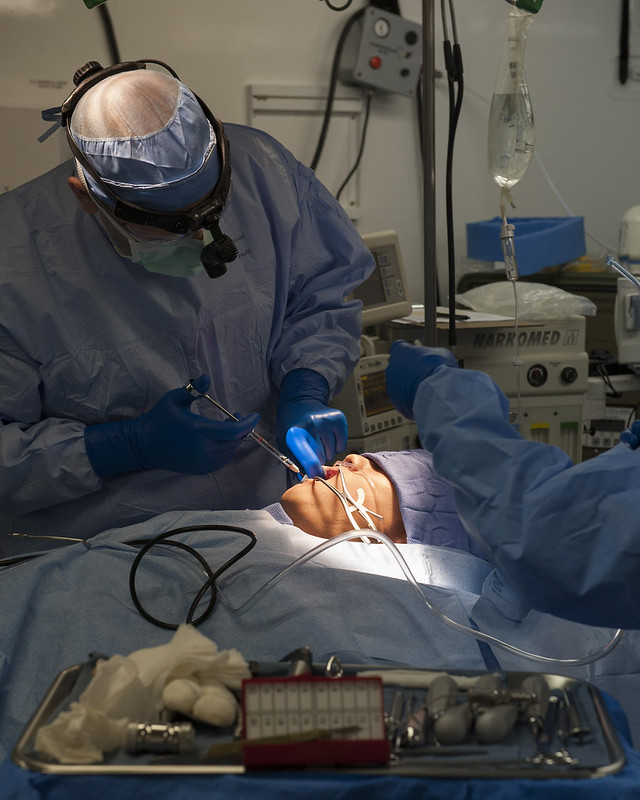An interesting article titled “Characteristics of Medical Malpractice Claims Involving Temporomandibular Joint Surgery in the United States” appears in the Journal of Oral and Maxillofacial Surgery written by M. Green and et. al. (April 14, 2022, vol. 80, no. 7, pp. 1153-1157). The article seeks to explore the characteristics of medical malpractice claims that involve temporomandibular joint (TMJ) surgery by oral and maxillofacial surgeons in the U.S.
In the article the authors conducted a study using data provided from OMS National Insurance Company, RRG (OMSNIC), which represents approximately 5,000 oral and maxillofacial surgeons in the United States. Closed malpratice claims data over the time period from from 1, 2016, through December 31, 2020 that was for claims against oral and maxillofacial surgeons in the Unites States with insurance coverage from OMSNIC was studied. Such claims were limited to lawsuits and were compensation was asked for. The claims were specific to TMJ surgery and included arthrocentesis, arthroscopy, arthroplasty, and total joint replacement (autogenous graft, stock, or customized alloplastic). Claims that did not involve TMJ surgeries were not part of the study.
The authors found a total of 1,455 claims during the study period with 14 such claims (0.96%) involving a TMJ surgery. Improper performance was the most common alleged error found in the claims. Two claims were settled with payment, and both of these said the alleged error was improper performance. The other 12 claims did not involved any payout. None of the 14 claims involving TMJ surgery received a courtadjudicated payout. The authors found that the risk of a settled case with a payout was not significantly influenced by the alleged error in the case. The authors also found that the risk of a settled case with a payout was not significantly influenced by the type of proces performed. Further, arthroscopy, arthroplasty, and total joint replacement did not have an increased risk of being settled with a payout when compared to the other TMJ surgery types. Of the 1,455 claims 1,000 caims (68.7%) were related to dentoalveolar procedures and 226 cases (15.5%) were related to dental implants. Of the TMJ surgery claims (0.46%) resulted in a payout, of the dentoalveolar procedures claims (68.65%) resulted in payout, and of the dental implat claims (17.85%) resulted in payout.
The authors state
“The results confirm that less than 1% of all claims against oral and maxillofacial surgeons involve a TMJ operation. There were no predictive factors… associated with an award settlement or court-adjudicated award. Common procedures including dentoalveolar surgery and dental implants more commonly resulted in…claims and payments…”
The authors were unable to determine the total number of procedures performed anually by oral surgeons for dentoalveolar procedures, dental implants, and TMJ surgeries. Because of this, the authors could not make statistical comparisons between procedure categories nor determine the relative risk of a claim/settlement by dentoalveolar surgery, dental implant, and TMJ surgery. However based on the data the authors felt that dentoalveolar procedures and dental implants were more likely to result in a settled cased and payout than TMJ surgery. As a result of this, the authors feel that oral and maxillofacial surgereons should not practice defense medicine and avoid offering TMJ surgery at their practices.

The authors mention several limitations of the study including that the study sample did not represent every U.S. oral and maxillofacial surgeon as OMSNIC insures about 88% of American Association of Oral and Maxillofacial Surgeon (AAOMS) members. This is because selection bias is a possibility here due to the differences in liability insurance. Such design of thes study may have limited medical malpractice claims against surgeons who perform TMJ surgeries at academic institutions. The study also only included a time period of 5 years for claims data which can lead to less statistical power but was done to try to highlight current trends. Even so the authors feel that the study provides insights into current medical malpractice trends in the US that involve TMJ surgeries performed by oral and maxillofacial surgeons.
